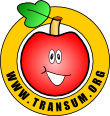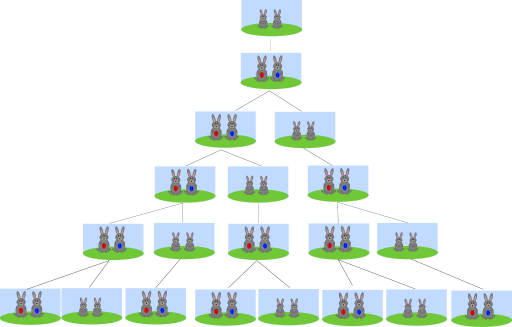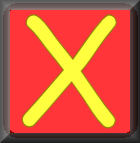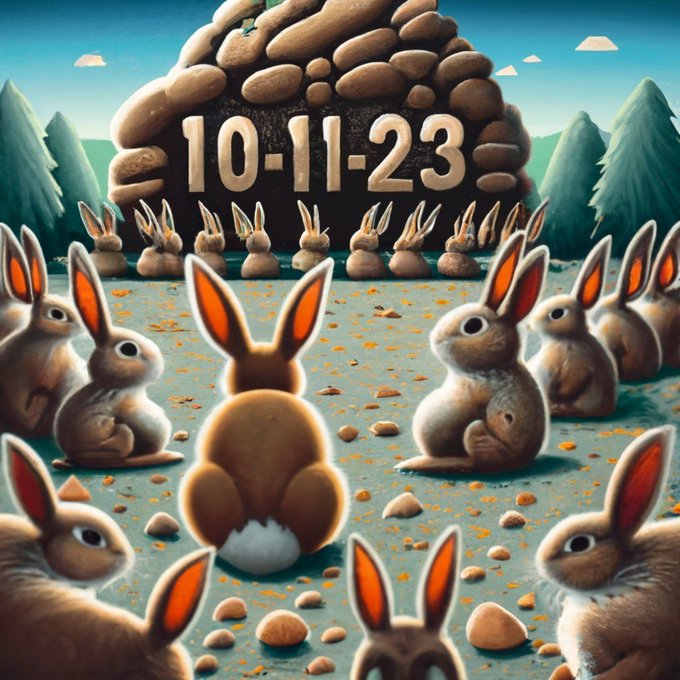
 |
Fibonacci QuestA number of self marking quizzes based on the fascinating Fibonacci Sequence. |
This is level 1; Continue the basic Fibonacci sequence.
This is the basic Fibonacci sequence. Each term can be found by adding the previous two terms together. So the third term, 2, was found by adding the two ones together.
Can you fill in the gaps to show more terms of the Fibonacci sequence?

The original problem that Fibonacci, an Italian mathematician, investigated (in the year 1202) was about how fast rabbits could breed.
Starting with one pair of rabbits, a male and a female, and assuming that rabbits are able to mate at the age of one month. At the end of the second month a female can produce another pair of rabbits. Assuming that the rabbits never die and that the female always produces one new pair every month from the second month on, how many pairs will there be at the end of each month?
Here is a challenge for you. Imagine a sequence of stairs in increasing order of size like these made from plastic cubes:

Now imagine that you can walk up the stairs either one step at a time or two steps at a time how many ways can you walk to the top?
For example, the model on the right of the photograph has four stairs. Here are the different ways you can walk up these stairs:
So there are 5 different ways of walking up four stairs.
Work out how many ways you can walk up other sized stair cases. Put your results in order in a table. What do you notice?
This is Fibonacci Quest level 1. You can also try:
Level 2
Level 3
Level 4
Level 5
Level 6
InstructionsTry your best to answer the questions above. Type your answers into the boxes provided leaving no spaces. As you work through the exercise regularly click the "check" button. If you have any wrong answers, do your best to do corrections but if there is anything you don't understand, please ask your teacher for help. When you have got all of the questions correct you may want to print out this page and paste it into your exercise book. If you keep your work in an ePortfolio you could take a screen shot of your answers and paste that into your Maths file. |
||
|
|
||
|
|

|
More Activities: |
|
Mathematicians are not the people who find Maths easy; they are the people who enjoy how mystifying, puzzling and hard it is. Are you a mathematician? Comment recorded on the 3 October 'Starter of the Day' page by Fiona Bray, Cams Hill School: "This is an excellent website. We all often use the starters as the pupils come in the door and get settled as we take the register." Comment recorded on the 19 November 'Starter of the Day' page by Lesley Sewell, Ysgol Aberconwy, Wales: "A Maths colleague introduced me to your web site and I love to use it. The questions are so varied I can use them with all of my classes, I even let year 13 have a go at some of them. I like being able to access Starters for the whole month so I can use favourites with classes I see at different times of the week. Thanks." |
Each month a newsletter is published containing details of the new additions to the Transum website and a new puzzle of the month. The newsletter is then duplicated as a podcast which is available on the major delivery networks. You can listen to the podcast while you are commuting, exercising or relaxing. Transum breaking news is available on Twitter @Transum and if that's not enough there is also a Transum Facebook page. |
|
AnswersThere are answers to this exercise but they are available in this space to teachers, tutors and parents who have logged in to their Transum subscription on this computer. A Transum subscription unlocks the answers to the online exercises, quizzes and puzzles. It also provides the teacher with access to quality external links on each of the Transum Topic pages and the facility to add to the collection themselves. Subscribers can manage class lists, lesson plans and assessment data in the Class Admin application and have access to reports of the Transum Trophies earned by class members. If you would like to enjoy ad-free access to the thousands of Transum resources, receive our monthly newsletter, unlock the printable worksheets and see our Maths Lesson Finishers then sign up for a subscription now: Subscribe |
||
Go MathsLearning and understanding Mathematics, at every level, requires learner engagement. Mathematics is not a spectator sport. Sometimes traditional teaching fails to actively involve students. One way to address the problem is through the use of interactive activities and this web site provides many of those. The Go Maths page is an alphabetical list of free activities designed for students in Secondary/High school. Maths MapAre you looking for something specific? An exercise to supplement the topic you are studying at school at the moment perhaps. Navigate using our Maths Map to find exercises, puzzles and Maths lesson starters grouped by topic. | ||
Teachers | ||
|
If you found this activity useful don't forget to record it in your scheme of work or learning management system. The short URL, ready to be copied and pasted, is as follows: |
Alternatively, if you use Google Classroom, all you have to do is click on the green icon below in order to add this activity to one of your classes. |
It may be worth remembering that if Transum.org should go offline for whatever reason, there is a mirror site at Transum.info that contains most of the resources that are available here on Transum.org. When planning to use technology in your lesson always have a plan B! |
|
Do you have any comments? It is always useful to receive feedback and helps make this free resource even more useful for those learning Mathematics anywhere in the world. Click here to enter your comments. |
||
© Transum Mathematics 1997-2026
Scan the QR code below to visit the online version of this activity.
https://www.Transum.org/go/?Num=498
Close

Level 1 - Continue the basic Fibonacci sequence
Level 2 - Continue the Fibonacci sequence in reverse
Level 3 - Find algebraic expressions for each term of a Fibonacci sequence
Level 4 - Finding the ratio of two successive numbers in Fibonacci's sequence
Level 5 - Investigate the highest common factor of every nth term of the Fibonacci sequence.
Level 6 - Finding missing terms from Fibonacci-type sequences.
More Sequences including lesson Starters, visual aids, investigations and self-marking exercises.
History of Mathematics It's good to look back at the famous mathematicians and their work.
Answers to this exercise are available lower down this page when you are logged in to your Transum account. If you don’t yet have a Transum subscription one can be very quickly set up if you are a teacher, tutor or parent.
See the National Curriculum page for links to related online activities and resources.
Arthur Benjamin gives a TED talk on Fibonacci numbers.
Don't wait until you have finished the exercise before you click on the 'Check' button. Click it often as you work through the questions to see if you are answering them correctly. You can double-click the 'Check' button to make it float at the bottom of your screen.
Answers to this exercise are available lower down this page when you are logged in to your Transum account. If you don’t yet have a Transum subscription one can be very quickly set up if you are a teacher, tutor or parent.
Read more about Fibonacci (Leonardo of Pisa).
Close

Transum,
Tuesday, May 26, 2020
"November 23 is celebrated as Fibonacci day because when the date is written in the mm/dd format (11/23), the digits in the date form a Fibonacci sequence: 1,1,2,3."
Leonardo, Pisa
Sunday, July 3, 2022
"I’ve written yet another book on the Fibonacci sequence. It’s as big as the previous two books put together!"
Transum,
Friday, November 10, 2023
"I am writing this on Friday, 10th November 2023. I have noticed that today must be some kind of special Fibonacci day because each of the digits in the date, starting with the third, is the sum of the previous two.
 "
"
Kyle Evans, A Year In Numbers
Monday, June 17, 2024
"Terms in the Fibonacci sequence can be used to create a Pythagorean triple (that's three numbers that could represent the lengths of the sides of a right-angled triangle). Here’s how you do it. Take four consecutive Fibonacci terms. Multiply the smallest and largest numbers. Multiply the two middle numbers, but then double the product. Square the two middle numbers and then add."